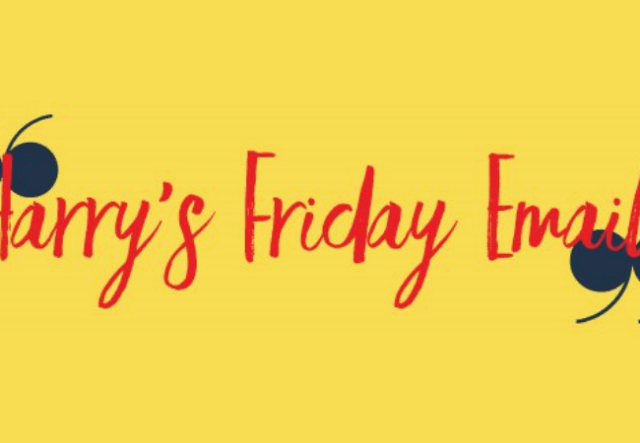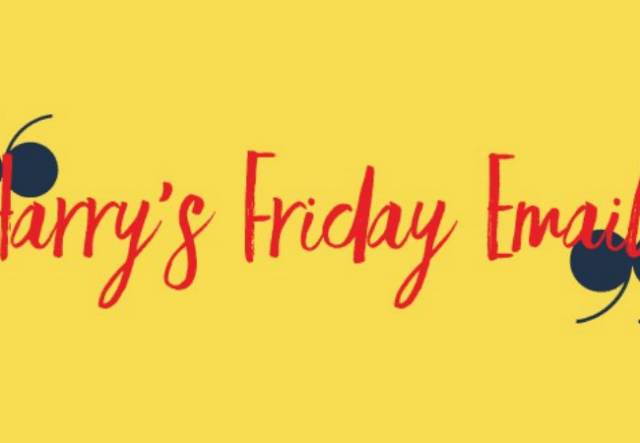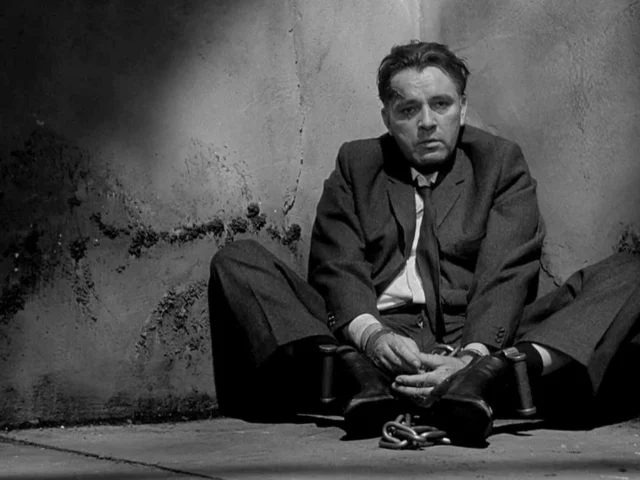The Secret of Cool
Last weekend, I went to a friend’s birthday party. The friend’s husband works in the music industry, as band leader for a number of very well-known pop acts. He’s toured everywhere and played at every stadium and venue you can imagine.
The result, inevitably, is that the standard of live music at the party was insanely high. Also inevitable: the number of genuinely cool people at the party was insanely high. Also inevitable: I was not amongst that number.
A short housekeeping digression begins …
I’m going to talk more about Cool People in a moment, but a couple of spots of housekeeping first, if you don’t mind.
Number one, next week, on 21 February, I’m introducing a webinar, hosted by the good folks from the Self-Publishing School on How to Write the Story You Were Meant to Tell. The presenter, Ramy Vance, started writing seriously in 2014, and has since published over 60 books on Amazon.
That’s a bewilderingly huge number, of course, and it made me realise that we at Jericho have really very little experience of that kind of high volume writing and publishing. So partly I wanted to hear from Ramy about how that experience works for him. But also, and mostly, I want to know whether this is an area that you guys are interested in. If you are, it’s an area we’ll develop in the future. If not, we’ll leave it mostly to one side. More details in the PSes. But if you’re even half-interested in that model, then do show up. I’m going to be intrigued to hear what you think.
That one point. The other is that we’re in the process of hiring a new marketing whizz. If you whizz and market, and can do both things at the same time, then please take a look at the PSes to see more about the position and the applications process. Thankee kindly.
And ends.
Right – back to the party.
I suppose the very first marker of Cool is what people are wearing. My wife is cool in some strange way that’s at complete right angles to what anyone else wears, so she rocked up in a vintage 1960s dress with white fur cuffs and white fur collar and a general whiff of Marilyn and Jackie and Audrey and Dusty and all that.
I’m just a middle-aged bloke with no depth of cool at all. So I wore nice jeans, a clean pink shirt, some nice shoes. Done.
Things I did not wear:
A pork pie hat
A shirt that looked like it was made of cheesecloth
Jeans that looked like they had been shaped for some quite other person
A tweed waistcoat, worn open
Actually, any sort of waistcoat, worn any way at all
Jewellery
A shirt unbuttoned to the mid-chest
Exotic facial hair
Glasses that looked like installations from a design museum
I wasn’t all that fussed about my lack of hats / beards / waistcoats / cheesecloth. In fact, I thought the opposite.
I tried to imagine myself as these others were, supposing I had access to the exact right kit. Not a new tweed waistcoat, but one aged and worn to the exact right degree. The right kind of shirt. The right trousers. The right everything.
If I’d had all that stuff, and worn it – I still wouldn’t have passed for one of the Cool Hordes. I wouldn’t have moved right. I wouldn’t have spoken right. Honestly, and this sounds daft to say, I don’t think my face would have been right.
There was one person there in an old blue shirt worn over a T-shirt and a pair of vaguely sculptural glasses. I do have shirts in my wardrobe much like the one he wore, so I could in theory have rocked that look. Except, his face said, “I am at home with gigs like this. Indeed, I have a huge stock of gig-experience, a world of knowledge and a depth of understanding. When I move my head gently to the beat, I do so in a way that betokens deep music wisdom.”
I’m not saying that with any sarcasm. He did have that experience and I did not. I couldn’t have faked that sense of being at home in this world.
Now, none of this bothered me at all. On the contrary, we had a nice time at the party and came away happy. As we drove home, I said to the missus that I thought I was probably the least cool person there.
She said – and these are the words of wisdom on which this email centres – “It’s not what you wear. It’s whether you wear it with confidence. That’s what being cool is.”
And she was right! She always is, bless her. She always is, damn her.
And in fact, it made me realise that the clothes have nothing to do with it. Those music industry types weren’t cool because of the clothes they wear. They just are cool. They are, roughly speaking, the group that our culture uses to define what it is to be cool. The equation, in fact, is roughly this: These people are cool; they wear what they wear; the result is that people think that those type of clothes are cool.
But in the end, what appeals to people is a kind of centred confidence, that has nothing whatever to do with dress.
OK And the relevance of all this to you, your manuscript, your anxious pen?
It’s simply this. You can’t fake what you’re not. You shouldn’t even try. The trying and failing is way worse than not trying in the first place.
So let’s say you want to write a thriller. You think, yep, Lee Child is as good as it gets. His style is pared back. His hero knows everything about guns and military techniques and police procedures and all that. So I need to write like that.
And, OK, maybe. That’s one route to a good thriller, for sure. But is that your style? Or your imitation of someone else’s style?
If it’s yours, then fine. Thrillerland is easily big enough to accommodate a few Lee Child type series.
But what if that style isn’t really you? Then you’re making the mistake of being a Nice Pink Shirt wearing type rocking up to a party in a look stolen from somebody else. You won’t suit that look. Somehow, in ways you can’t even describe, you’ll betray it. At some surface level, it’ll look like you’re ‘doing Lee Child’, but you’ll never fool the reader. Not for long.
At that party, I wasn’t one whit uncomfortable in what I wore. People would have looked at me and thought, “He’s clearly not a music industry type, but he looks completely confident in his own skin.”
That’s what you want to aim for. When I wrote my Fiona series, I was obviously very conscious of what other crime writers were doing. But as often as not, my crime series turned its back on their choices and happily did its own thing. That wasn’t dissing their choices – simply they weren’t mine.
I think, roughly, that’s the model for how any writer needs to write. You need to know your landscape. You need to know what the classic books of the genre are. You need to know what’s being written today. You need to know something of what’s going on in your genre’s nearest neighbours.
But then you put all that aside and Just Be You. If that’s a pork-pie hat and a beard, then be that person. If it’s a Nice Pink Shirt and Proper Shoes, then be that person.
The full confident expression of your vision will always work better than any attempt to imitate someone else.
That’s not a licence to break the rules. You still need an elevator pitch that appeals. You need to understand where you fit in the market of today. Your plot still needs to cohere. Your witing needs to be strong, or not less than confident.
(Why do I feel the need to add that caveat? Because we still get manuscripts that are clearly unmarketable for one or all of the above reasons. When challenged the writer often says, “yes, but this is how I want to write. This is my personal vision.” And, OK. It’s your personal vision. But you’ll never get published.)
That’s it from me – your very own Mr Cool.
Til soon.
Harry
-------------------------------------------------------------------------------------------------
PS: That Ramy Vance webinar. It’s titled “How to Tell The Story You Were Meant To Tell Without Taking Years to Do So (or Compromising on Quality).” But really, for me the bit that’s intriguing here is the scale of Ramy’s output. He’s been writing seriously since 2014 and he’s authored, or co-authored, over 60 books.
Clearly, my own output is nothing remotely like that. But no question, that high-output, self-publishing approach is a proven way to make a good living as an independent writer. It’s not an area we know a ton about. Ramy does. And I’m really looking forward to what he has to say.
I’m introducing the webinar. Self-Publishing School is hosting it. The webinar kicks off at 6.00pm London time, 1.00pm EST.
If you want to register, the link is here: selfpublishing.com/jerichowriters
And if you attend, do please let us know what you think. I’m intrigued to know whether you think this kind of model we should be exploring more than we do.
PPS: We’re hiring a new marketing manager. If you’re interested, there’s more information here: https://jerichowriters.com/jericho-writers/about-us/meet-the-team/#current-vacancies
We’re a damn nice bunch to work with, and we look forward to welcoming the right candidate on board soon.
PPPS: If you’d be interested in being Cool at some parties – we have TWO face-to-face meetups happening in the coming months. The first takes place in London on April 21st, the second in Leeds on April 28th. Both run from 18:00 to 23:00. More information here.







